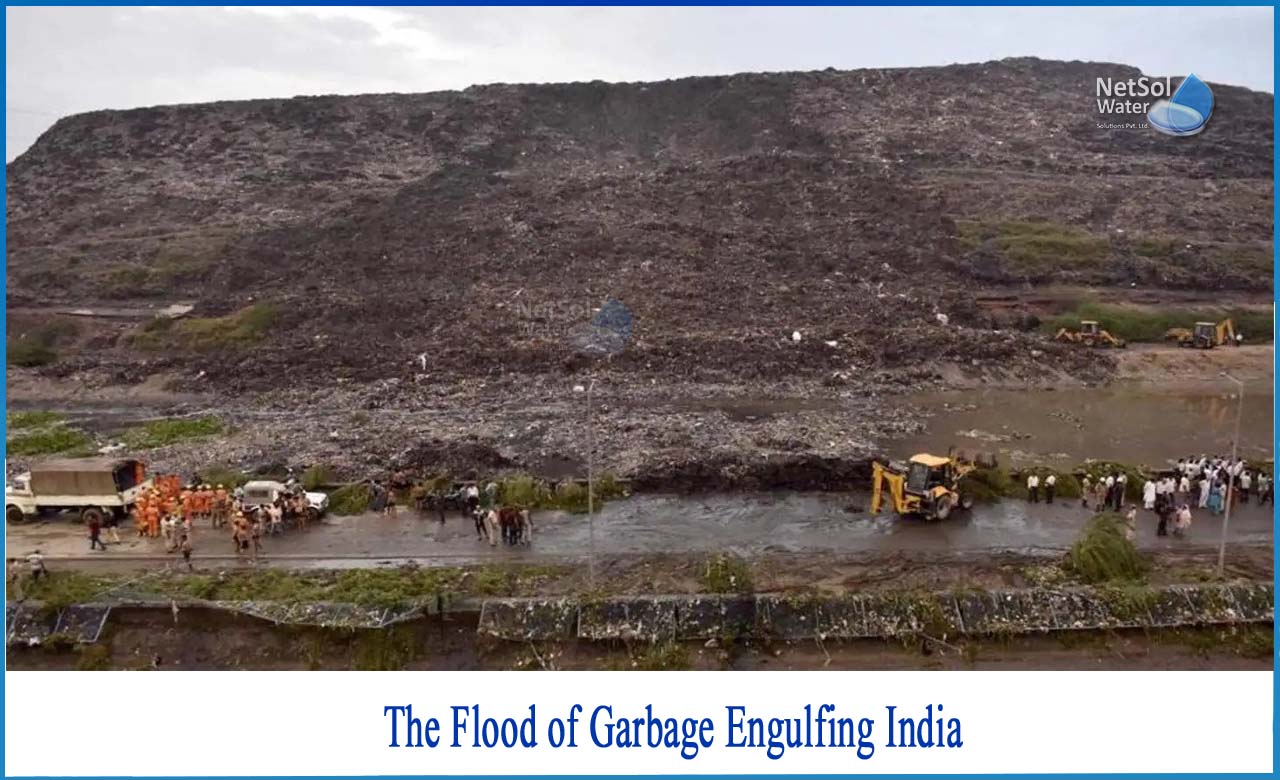What is the solution of flood garbage engulfing in India?
People from Mumbai will tell you about the massive fire at the Deonar dump in 2016 that lasted for days. Any Delhi resident can point you to the Ghazipur dump, which has become one of the city's sights.
Landfills have become monuments and navigational markers in each Indian city nowadays, simply because of their sheer magnitude, and topics of discourse.
Every year, India's cities create 62 million tonnes of rubbish. Solid waste accounts for 43 million tonnes of this, the most majority of which is not handled and ends up in landfills, cluttering up space, leaking pollutants into groundwater, contaminating the air, and posing fire, sanitation, and safety risks.
India's daily trash output is expected to reach 377,000 tonnes by 2025, according to the World Bank. And, as more people migrate to cities in India, cities will generate the majority of the country's trash. Our landfills, which are already overburdened, are no longer capable of handling even a portion of this rubbish. The public health concerns, as well as the social challenges that handle such massive volumes of trash entails, are enormous. When you throw in, the damage we're doing to the environment, we're dealing with a catastrophe so massive that even the most dramatic remedies will seem like spitting in the wind to put out a fire.
The efforts!
The “Swachh Bharat Abhiyaan” has been focused on building toilets and declaring village after village ODF-free, but any cleanliness programme will fail until we have a large-scale, holistic waste management strategy that people, corporations, and other stakeholders follow faithfully.
Is a Swachh Bharat a reality?
Yes! But it will only be feasible if we, the people, work together with the government and recognise and embrace our part in keeping our country clean and our people healthy. Good governance and supervision are combined.
The situation
Let's go beneath the metaphorical rug to see what's going on in our original four metros. Every day, Mumbai creates about 10,000 metric tonnes of trash. It has three landfills to deal with the rubbish, which is stacked up to five floors high. With three landfills that are currently at or near capacity, Delhi generates close to 9000 metric tonnes of garbage every day. Chennai has two landfills to handle the city's daily trash of around 5000 metric tonnes.
Two overburdened landfills in Kolkata are struggling to cope with 4000 metric tonnes of rubbish every day. We create more over 40,000 metric tonnes of rubbish per day in major cities, including Bengaluru, Pune, and Hyderabad, with little to no waste management in place.
Unhealthy way adopted to tackle the problem _
Most of these landfills continue to burn waste, which, aside from being entirely unscientific, is a major contributor to the poor air quality that has plagued India for far too long. In certain locations, composting is practised, however the ability of these plants to compost is vastly disproportionate to the amount of garbage they are supposed to digest. In Kolkata, for example, a compost factory at the Dhapa dump can handle up to 500 tonnes per day, which is around a fifth of what it should be. The amount of garbage recycled at these landfills is likewise insignificant. Experts in Delhi, for example, say that up to 50% of garbage may be composted and 30% recycled, but only around half of the waste is processed.
Conclusion
Several municipal ordinances have been introduced across metropolitan India in the last three years to guarantee trash segregation and treatment at source - failure to comply results in harsh fines. Regardless of the municipal authority in question, however, restrictions are still being loosely construed at best and downright flouted at worst.
We are all aware of the landfill situation we're facing. What are you doing to stop the tsunami at the grassroots level — in your house, your housing society, or your workplace complex?
If you'd want to put a strategy in place but aren't sure how, just call Netsol water solutions, because our aim to minimize the pollution in every possible way is on the top of priorities.



